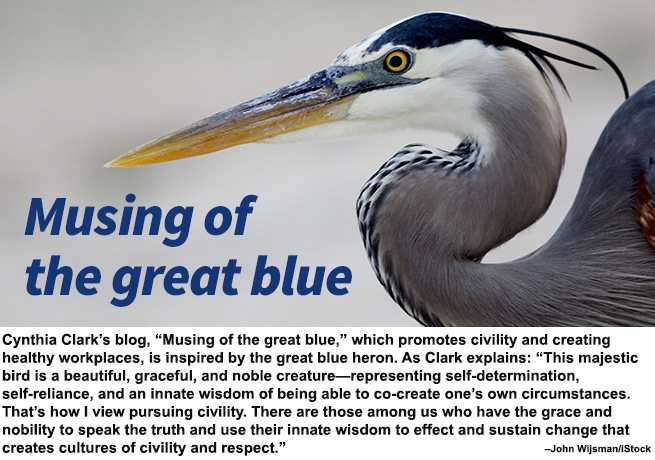Have you noticed a decline of this important interpersonal skill in your practice?

Most nurse educators are confident about teaching technical skills, but less so when it comes to teaching interpersonal skills such as empathy. The author offers useful tips.
I recently attended an international nursing conference where, following the plenary address, a member of the audience posed a question: Were others in the audience also seeing a decline in empathy among nurses? When it became apparent that they had, indeed, noticed a waning of empathy among their nurse colleagues, she posed a follow-up question: “Can empathy be taught and, therefore, learned?”
This provocative and important question certainly piqued my interest. It’s the same question I often hear as I travel, speaking with nursing groups large and small. Most nurse educators in academic settings as well as practice express confidence about teaching hands-on, technical skills. But their confidence level is considerably lower when it comes to teaching interpersonal skills such as effective communication, conflict management, and yes, expressing empathy.
What is empathy?
Empathy is recognizing and appreciating another’s perspective, being able to put ourselves in the situation or positions of others, and thinking beyond our own concerns. It’s suspending our own viewpoint or belief to better understand the perspectives of others. In a 2006 commencement address at Xavier University, former President Barack Obama described empathy this way:
I think we should talk more about our empathy deficit—the ability to put ourselves in someone else’s shoes; to see the world through the eyes of those who are different from us—the child who’s hungry, the steelworker who’s been laid off, the family who lost the entire life they built together when the storm came to town. When you think like this—when you choose to broaden your ambit of concern and empathize with the plight of others, whether they are close friends or distant strangers—it becomes harder not to act; harder not to help.
 For nurses, being empathic must become integrated into our everyday practice. There are several ways to enhance our empathy capacity. One of the most effective ways to understand where another person is coming from is to ask. Showing genuine interest and asking others to share their thoughts, feelings, perceptions, and experiences is one of the most efficient and direct ways to develop empathy and understanding.
For nurses, being empathic must become integrated into our everyday practice. There are several ways to enhance our empathy capacity. One of the most effective ways to understand where another person is coming from is to ask. Showing genuine interest and asking others to share their thoughts, feelings, perceptions, and experiences is one of the most efficient and direct ways to develop empathy and understanding.
Ways to show empathy
Another effective way to enhance empathy is to pay attention and stay engaged in what’s happening around us—by listening carefully, suspending self-interest, and making a concerted effort to understand others and where they are coming from. Doing so will help build esprit de corps, fellowship, and collaboration. Empathy is an attitude that must be cultivated and practiced if it is to become part of our daily lives. By doing so, we improve the lives of others.
I have created a self-reflection exercise to help nursing students, nurses, and other healthcare professionals consider the impact of incivility on patient care. The intent is to promote caring, compassion, and empathy for others. Click below to hear audio file.
Although empathy can be partially fostered through self-reflection, the real test comes from soliciting and accepting feedback from others and becoming genuinely interested in their lives.
Other ways to build empathy include being curious and inquisitive—but not intrusive—by chatting with people we meet along life’s journey, such as the person sitting next to you on the plane, or the person next to you in line at the coffee shop. Talking with people outside our usual social circle helps expand our perspectives and worldviews.
Developing empathy requires us to set aside assumptions, stereotypes, and biases that prevent us from appreciating the situations and conditions of others. Common stereotypes include “self-centered millennials” and “frequent flyers” (a demeaning and unacceptable term for patients who are considered high-volume users of health care services, such as people challenged by alcohol or other misused substances). We must seek to understand and discover what we have in common with other people rather than what divides us.
Inside another’s skin
Expanding our capacity for empathy also requires us to open our minds and put ourselves in the position of others. I’m reminded of a statement by Atticus Finch in Harper Lee’s To Kill a Mockingbird: “You never really understand a person until you consider things from his point of view, until you climb inside of his skin and walk around in it.” Being empathic fosters a sense of compassion and kindness for others and improves our ability to communicate and understand.
To be empathic, we must listen well to grasp the emotional state and needs of others and genuinely share our thoughts, feelings, and ideas. The challenge many of us face is empathizing with people whose beliefs or opinions we don’t share or we perceive as adversaries. For instance, if you are a proponent of the U.S. Affordable Care Act, try to step into the shoes of small-business owners—understanding their thinking and motivations. Empathizing with those who share a different position or opinion may lead to not only personal growth, but organizational civility as well, because mastering empathy is a vital ingredient for effective teamwork, collaboration, and, ultimately, delivery of safe patient care. RNL
Reference
Harper, L. (1960). To kill a mockingbird, Philadelphia, PA: J. B. Lippincott Publishing Company.
 Cynthia Clark, PhD, RN, ANEF, FAAN, strategic nursing advisor and consultant for ATI Nursing Education, founder of Civility Matters, and author of Creating & Sustaining Civility in Nursing Education, Second Edition, is a psychiatric nurse/therapist and an expert in fostering civility and healthy workplaces. Professor emeritus at Boise State University in Boise, Idaho, USA, Clark is recognized for her pioneering work in fostering civility in the nursing community. She has conducted numerous studies to better understand issues related to civility and to develop best practices to foster civility and healthy workplaces.
Cynthia Clark, PhD, RN, ANEF, FAAN, strategic nursing advisor and consultant for ATI Nursing Education, founder of Civility Matters, and author of Creating & Sustaining Civility in Nursing Education, Second Edition, is a psychiatric nurse/therapist and an expert in fostering civility and healthy workplaces. Professor emeritus at Boise State University in Boise, Idaho, USA, Clark is recognized for her pioneering work in fostering civility in the nursing community. She has conducted numerous studies to better understand issues related to civility and to develop best practices to foster civility and healthy workplaces.
An avid walker and hiker, she also enjoys biking, canoeing, cooking, and reading, as well as spending time with family, friends, and multiple rescue pets. Click here to access Blogger-resident entries by Clark posted before 2017.